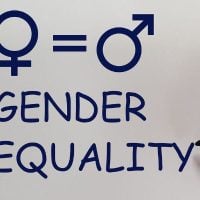Deadline: 15-Aug-2025
The United Nations International Children’s Emergency Fund (UNICEF) is inviting expressions of interest for the Resilience in Secondary Education (Rise) Programme. This initiative aims to test, adapt, and scale nationally accredited, technology-enabled flexible alternative pathways to secondary education for out-of-school youth who lack formal education qualifications.
UNICEF seeks non-governmental organizations (NGOs), preferably national ones, with proven expertise in alternative learning pathways and accredited equivalency programmes. The focus includes youth empowerment with gender-responsive and disability-inclusive approaches, technology-enabled learning, digital skills development, and community mobilization. Partnerships with local government, youth-led organizations, and networks are also key.
The programme will be implemented in collaboration with Rwanda’s Ministry of Education (MINEDUC), Rwanda Basic Education (REB), the National Examination and School Inspection Authority (NESA), the Rwanda TVET Board (RTB), and other non-governmental partners. The call specifically targets implementation in 10 districts, while other partners cover 20 additional districts. Organizations interested in providing specialized support for vulnerable groups such as young mothers, displaced or refugee youth, and youth with disabilities are especially encouraged to apply.
The programme focuses on education for out-of-school youth, skills development for adolescents, and is geographically focused on Southern Rwanda. Expected results include establishing at least 700 learning sites across 10 districts, offering secondary education equivalency programmes, including vocational, digital, and life skills through technology-enabled alternative learning pathways.
Additionally, at least 2,000 facilitators and mentors will be recruited and trained to support inclusive learning in these sites. The project aims to increase awareness, engagement, and demand for inclusive alternative education, particularly for young women, refugees, and youth with disabilities. It will also deliver relevant wraparound services to ensure inclusive learning opportunities for the most vulnerable youth.
Selection criteria for applicants include sector expertise and experience, operational and organizational capacity, being a national organization, partner contribution, and experience working with the UN.
For more information, visit UN Partner Portal.









































